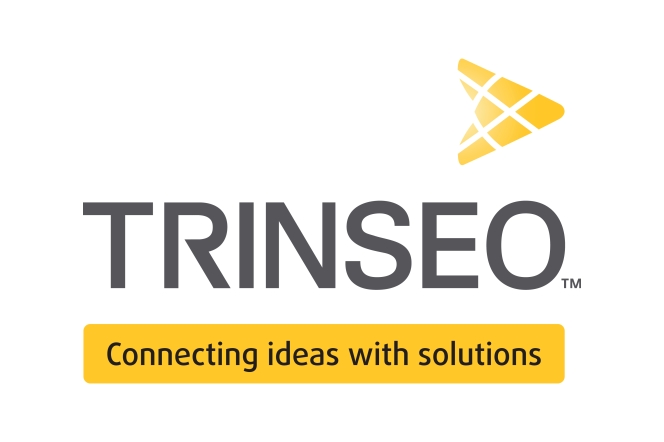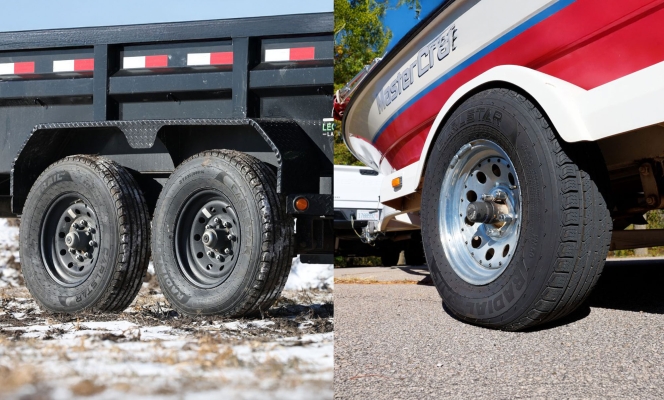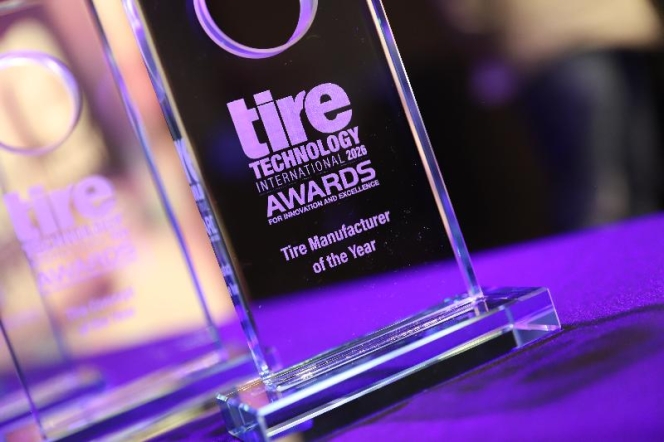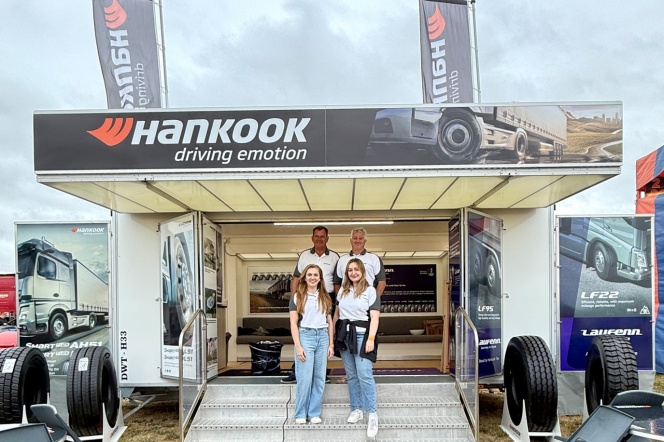Trinseo Reports Q3 Loss, Restructuring Efforts Continue
- By TT News
- November 11, 2024

Speciality materials company Trinseo reported a third-quarter net loss of USD 87 million, driven largely by restructuring and other charges totalling USD 26 million.
This follows recently announced restructuring efforts aimed at streamlining operations. The company posted an adjusted EBITDA of USD 66 million, marking a USD 25 million increase year-over-year.
Despite a one percent year-over-year decline in net sales to USD 868 million, the company attributed an eight percent decrease in sales to intentional reductions in low-margin areas like polystyrene and latex binders. However, a seven percent increase from higher raw material prices partially offset this decline.
Commenting on the company’s third-quarter performance, President and Chief Executive Officer of Trinseo, Frank Bozich said, “As expected, market conditions and Adjusted EBITDA were sequentially similar to the prior quarter. Despite continued weak demand in many of our end markets, particularly building and construction and appliances, we saw significant year-over-year profitability improvement largely as a result of our restructuring actions and continued moderation of European input costs.”
Third Quarter Performance by Segment
Engineered Materials: The segment posted a 12 percent rise in net sales, reaching USD 207 million, driven by increased sales volume in consumer electronics and medical applications. Adjusted EBITDA for the segment rose by USD 20 million to USD 25 million, benefiting from improved margins and a favourable product mix.
Latex Binders: Net sales increased eight percent to USD 242 million, primarily due to higher prices that offset a drop in sales volume for paper and carpet applications. Adjusted EBITDA increased by USD 8 million to USD 26 million, reflecting improved margins and a positive regional and product mix.
Plastics Solutions: Net sales rose three percent year-over-year to USD 268 million, driven by higher raw material costs. Adjusted EBITDA climbed USD 11 million to USD 28 million, aided by higher fixed cost absorption and inventory builds in preparation for the closure of the virgin polycarbonate facility in Stade, Germany.
Polystyrene: This segment saw a 28 percent year-over-year decline in net sales to USD 151 million, impacted by a 35 percent decrease in volume after the closure of the Terneuzen, Netherlands, facility and a reduction in low-margin sales. Adjusted EBITDA rose by USD 5 million to USD 4 million due to higher margins and cost savings from the Terneuzen facility exit.
Fourth Quarter Outlook
Trinseo projects a net loss of between USD 71 million and USD 81 million in the fourth quarter, with adjusted EBITDA expected to range from USD 40 million to USD 50 million. Bozich noted that while fourth-quarter EBITDA is anticipated to dip from year-end seasonality, restructuring benefits should sustain profitability above prior-year levels. The company also expects positive free cash flow due to seasonal working capital improvements.
Commenting on the fourth quarter outlook, Bozich said, “We expect Adjusted EBITDA to be sequentially lower from year-end seasonality, but still higher than the prior year due to the benefits from our restructuring initiatives. We also expect free cash flow to turn positive in the fourth quarter due to typical seasonal working capital improvements.”
- Titan International
- Titan Radial Trail A/T
- Titan Radial Trail HD
- All-Terrain Trailer Tyres
- High-Speed Trailer Tyres
Titan Launches Radial Trail A/T And Unveils Speed Rating Upgrade For Radial Trail HD
- By TT News
- March 05, 2026

Titan International has introduced the Radial Trail A/T, a new all-terrain high-speed trailer (HST) tyre described as the first true product of its kind in the industry. Unlike conventional trailer tyres that are often adapted from older light truck designs, this model has been engineered entirely from the ground up as a dedicated trailer tyre capable of performing reliably across diverse environments. Alongside this launch, Titan has announced a speed-rating upgrade to its established Radial Trail HD tyre.
The new Radial Trail A/T tyre’s field-tested design incorporates an aggressive tread pattern for enhanced traction on gravel, mud, grass and uneven backroads. The tyre also features a centre tread bridge that lowers rolling resistance to support better fuel efficiency and towing stability. Shoulder tread bridges promote even wear and extend the tyre’s lifespan while reducing road noise, and an open shoulder configuration helps dissipate heat and shed debris. Alternating scoops improve control on soft surfaces such as sand and mud, and extended tread elements along with a rim guard offer added protection against scuffs and impacts. The Radial Trail A/T is currently available in size ST235/75R15 LRE, with four additional sizes expected to roll out over the summer.
Now carrying an N speed rating, which allows for operation at speeds up to 87 mph (approximately 140 kmph), the updated Radial Trail HD tyre incorporates heat-resistant engineering to deliver reliable performance under demanding conditions while surpassing Department of Transportation standards. The enhanced Radial Trail HD tyres are available for order immediately.
Both product releases reflect Titan’s continued focus on advancing trailer tyre technology through purpose-built solutions. Whether used for long highway journeys or off-road exploration, these tyres aim to provide drivers with improved traction, durability, and dependability. Together, they represent the company’s broader effort to support trailer owners with greater confidence and peace of mind on the road.
Ryan Fuller, High Speed Trailer Product Manager, Titan Specialty Division, said, “Titan is setting a new standard in high-speed trailer tyre performance. The Radial Trail A/T is the first trailer tyre truly engineered for all-terrain conditions, not adapted from outdated moulds. Combined with the enhancements to the Radial Trail HD, we’re giving our customers unmatched confidence whether they’re hauling down highways or navigating rugged backroads.”
- Continental
- 2026 Tire Technology Awards
- Tire Manufacturer of the Year
- Environmental Achievement of the Year – Manufacturing
- Sustainability
Double Win For Continental At 2026 Tire Technology International Awards
- By TT News
- March 05, 2026

Continental has once again been recognised as ‘Tire Manufacturer of the Year’ at the latest edition of Tire Technology International Awards for Innovation and Excellence, marking the fifth time it has received this prestigious honour. The independent jury acknowledged the company's groundbreaking tyre technologies, innovative measurement approaches and continuous production process enhancements for establishing new industry standards. Additionally, Continental received the ‘Environmental Achievement of the Year – Manufacturing’ award for its substantial progress in reducing water consumption during tyre production.
During the 3 March ceremony in Hannover, the jury specifically highlighted several key developments from Continental's 2025 initiatives. The company advanced sustainability through the adoption of renewable synthetic rubber components, including pyrolysis oil recovered from end-of-life tyres and recycled cooking oil. A collaborative effort with the Technical University of Braunschweig yielded an innovative method for detecting tyre wear particles using a specialised vacuum system positioned behind drive wheels, equipped with sensitive particle sensors capable of identifying even microscopic airborne debris from various vehicle locations.
The VanContact A/S Eco received special recognition as the first van tyre to achieve the highest ‘A’ rating across all three EU tire label categories – rolling resistance, wet grip and rolling noise. Continental's partnership with the Deutsche Gesellschaft für Internationale Zusammenarbeit promoting responsible natural rubber sourcing in Indonesia also earned jury commendation.
Between 2020 and 2025, Continental successfully reduced water withdrawal per metric tonne of product by over 10 percent across all production facilities, conserving an impressive 197 million litres of water. This achievement resulted from implementing advanced filtration and membrane technologies that enable approximately 90 percent of wastewater to be treated and reused. The company maintains a comprehensive water management approach, systematically refining processes related to heating, cooling and sanitation. External validation of these efforts came through a ‘B’ rating from the independent organisation CDP for Continental's 2025 water management practices.
Edwin Goudswaard, Head of Research and Development at Continental Tires, said, “Tyres are our passion. We are committed to optimising them and making our manufacturing processes even more advanced and resource-efficient. Our greatest strength is our global team, working together closely to develop highly creative and innovative solutions. The jury honoured this very special commitment. And I would like to express my heartfelt thanks to all our colleagues for their remarkable dedication.”
Henning Mühlenstedt, Head of Future Technologies and Sustainable Infrastructure at Continental Tires, said, “Water is a valuable resource. Our continued progress in reducing consumption at our plants demonstrates how effective our approach is.”
TRA Announces 2026 Briefing Day Focused On Circular Economy
- By TT News
- March 05, 2026

The Tyre Recovery Association has confirmed that its 2026 TRA Briefing Day will take place on 15 September 2026 at the Coombe Abbey Hotel in Coventry. The event, themed Giving REAL Meaning to the Circular Economy, will provide essential insights into the challenges and opportunities currently facing end-of-life tyre recycling both in the UK and globally.
Now an annual fixture, the Briefing Day aims to bring together industry professionals to discuss key developments in the sector. Attendance is free of charge for TRA members, media representatives, industry partners and regulators. For all other participants, a fee of GBP 70 plus VAT will apply, which includes access to a buffet lunch and refreshments throughout the day.
Those interested in attending are encouraged to register in advance by contacting the TRA office via post, telephone, email or through the association’s website. The event promises to deliver valuable updates and analysis for all those involved in the tyre recovery and recycling industry.
Hankook Confirms Partnership As Sponsor For Convoy Truck Shows 2026
- By TT News
- March 04, 2026

Hankook has confirmed its partnership for the 2026 Convoy Truck Shows, stepping in as an infield partner for the series, which runs in tandem with the British Truck Racing Championships (BTRC). These events offer a distinctive fusion of high-octane track action and the immersive atmosphere of a large-scale truck gathering. This renewed involvement deepens Hankook’s footprint at some of the most eagerly awaited dates on the UK motorsport and haulage calendar.
The season’s schedule commences with Convoy on the Plain on 16–17 May, followed by Convoy Cymru on 20–21 June. The flagship gathering, Convoy in the Park, will round off the summer season on 8–9 August. Attendees can look forward to a full agenda of British truck racing, breathtaking stunt performances, live entertainment and attractions for all ages, alongside a remarkable display of working vehicles, custom rigs and pristine show trucks. Mirroring its sponsorship of the Devon Truck Show, Hankook’s partnership with the Convoy series supports its wider mission to generate substantial donations for local charitable causes and community groups, positioning it as an event with purpose beyond spectacle.
At each of these shows, Hankook will spotlight its cutting-edge range of commercial and consumer tyres. Key exhibits will feature the SmartFlex AH51 for steer axles and the SmartFlex DH51 for drives, both engineered for long-haul and regional use and prized for superior traction and extended durability. Also on show will be the SmartFlex TH31 trailer tyre, the Vantra Transit summer tyre for commercial vans and several models from the Laufenn portfolio, such as the LZ22 all-weather drive tyre, the LF21 all-position tyre and the robust LF95 trailer tyre.
Rounding out the display are the Dynapro HP2 all-season SUV tyre and the iON evo SUV, a cutting-edge summer tyre purpose-built for electric vehicles, underlining Hankook’s forward-looking approach to sustainable mobility. Through its involvement in the Convoy Truck Shows, Hankook reinforces its dedication to the haulage industry by engaging directly with drivers, fleet operators and enthusiasts, showcasing tyre innovations focused on safety, efficiency and peak performance, all while actively contributing to valuable community initiatives.
Event Director Mike Quartley said, "We’re thrilled to have Hankook Tyre UK return as an official sponsor of the Convoy Truck Shows. After the success of last year’s collaboration, continuing the partnership was an easy decision for us. Hankook’s commitment to the industry and to our events adds real value across the board – from contributing to the scale and quality of the events to elevating the atmosphere and experience for our audience. We’re proud to be building on this relationship as the Convoy series continues to grow.”







Comments (0)
ADD COMMENT